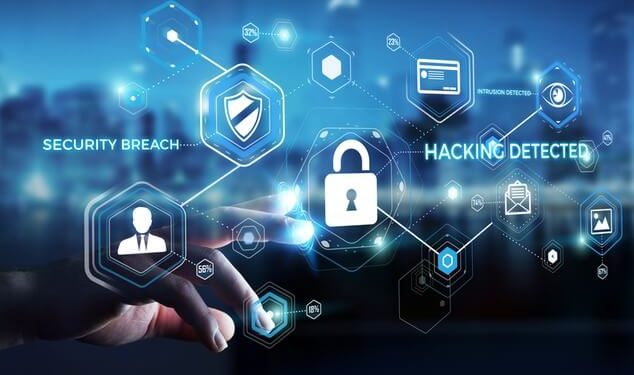In today’s digital age, the security landscape for businesses has evolved significantly. From physical break-ins to sophisticated cyberattacks, companies face many threats that can disrupt operations, compromise sensitive data, and damage their reputation. As technology advances, so do the tactics employed by malicious actors. It is crucial for businesses to be proactive in implementing robust security measures that encompass both physical and digital realms. In this blog post, we will explore the importance of business security in the face of evolving threats and provide actionable steps to safeguard your organization from burglaries and cyberattacks.
Understanding the Changing Landscape of Business Security
In the digital age, the landscape of business security has witnessed a transformative shift. With technological advancements, the nature and complexity of threats have evolved, requiring businesses to adapt their security measures accordingly. While physical break-ins, theft, and unauthorized access remain persistent concerns, the rise of cyberattacks has added a new dimension to the security landscape. Hackers and malicious actors leverage sophisticated techniques to exploit vulnerabilities in networks, systems, and applications, posing significant risks to businesses. From phishing scams and ransomware attacks to data breaches and intellectual property theft, cybercrime has become a lucrative enterprise that demands a comprehensive approach to safeguarding valuable assets and sensitive information.
The Impact of Cyberattacks on Business
The impact of cyberattacks on businesses cannot be underestimated. These malicious acts can have far-reaching consequences that go beyond immediate financial losses. A successful cyberattack can severely damage a company’s reputation, customer trust, and overall business operations. Additionally, the theft or compromise of sensitive data, such as customer information or intellectual property, can result in legal liabilities, compliance breaches, and regulatory penalties. This disruption of critical business systems and networks can lead to costly downtime, hampering productivity and causing potential and significant revenue losses. Moreover, businesses may also face the daunting task of rebuilding customer confidence and restoring their brand image. It is clear that the implications of cyberattacks extend well beyond the digital realm, emphasizing the vital importance of robust business security measures to protect against these ever-evolving threats.
Building a Robust Physical Security Foundation
Building a robust physical security foundation is crucial in today’s evolving landscape, even as digital threats continue to rise. By implementing access control systems, surveillance cameras, and alarm systems, businesses can effectively deter burglaries and unauthorized entry. Additionally, well-lit premises, secure locks, and restricted access areas add layers of security to safeguard against physical threats. A comprehensive physical security framework is the cornerstone of overall business security, providing a visible deterrent, enabling prompt response to incidents, and creating a safe environment for employees, customers, and valuable assets. Businesses must recognize the importance of maintaining a strong physical security posture alongside digital security measures as they work together to create a holistic and robust defence against potential risks.
Strengthening Cybersecurity Measures
To effectively protect your business from the ever-evolving landscape of cyber threats, it is imperative to establish a multi-layered cybersecurity approach. Begin by conducting a comprehensive risk assessment to identify potential vulnerabilities and prioritize areas needing improvement. Implement robust firewalls and secure networks to create a fortified digital perimeter while regularly updating software and systems to ensure the latest security patches are in place. Education plays a pivotal role in cybersecurity, so providing employees with thorough training on best practices, such as recognizing and avoiding phishing emails, using strong and unique passwords, and being vigilant about suspicious online activities, is crucial. Regularly backing up critical data is also essential to mitigate the impact of potential cyber incidents, as it ensures that you can quickly recover and resume normal operations in the event of a breach or data loss. Equally important is having a well-defined incident response plan that outlines the necessary steps to be taken in the event of a cybersecurity breach, including containment, investigation, and recovery processes.
Employee Training and Awareness
Employee training and awareness are integral components of a comprehensive business security strategy. Regular training sessions should be conducted to educate employees about both physical security measures and cybersecurity practices. By equipping employees with the knowledge and skills necessary to identify and respond to potential threats, they become the first line of defense in protecting the business. Empowering employees to participate in security measures actively fosters a culture of security consciousness. Encourage them to be vigilant, promptly report suspicious activities or concerns, and foster a sense of shared responsibility for maintaining a secure environment. By promoting awareness and creating a collaborative security mindset, businesses can maximize their security posture and create a proactive approach to mitigate risks. Remember, the strength of the security measures is amplified when employees are well-trained and actively engaged in the organization’s security efforts.
Final Thoughts
In the digital age, protecting your business requires a holistic approach that addresses both physical and cyber threats. By investing in robust physical security measures, implementing comprehensive cybersecurity protocols, and empowering employees through training, you can significantly reduce the risk of burglaries and cyberattacks. Remember, efficient business security is an ongoing process that requires vigilance and adaptability. Stay informed about the latest security trends, regularly evaluate and update your security measures, and proactively address any vulnerabilities. By prioritizing business security, you safeguard your organization’s success and reputation in the digital age.
Follow Techdee for more!





